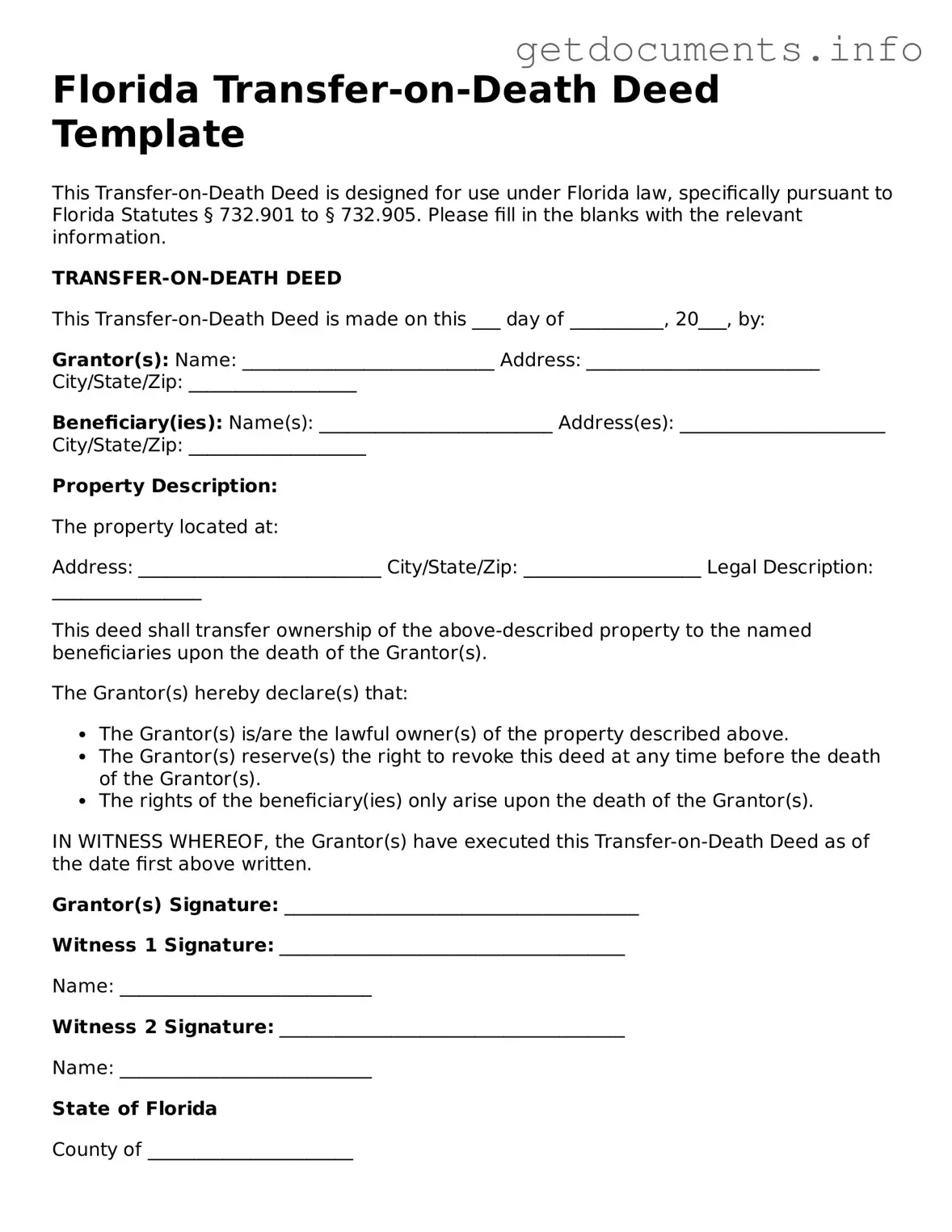Free Transfer-on-Death Deed Template for Florida
The Florida Transfer-on-Death Deed form is a legal document that allows property owners to transfer their real estate to beneficiaries upon their death without the need for probate. This deed provides a straightforward way to ensure that your property passes directly to your chosen heirs, simplifying the process for your loved ones. To begin securing your property’s future, fill out the form by clicking the button below.
Access Transfer-on-Death Deed Editor

Free Transfer-on-Death Deed Template for Florida
Access Transfer-on-Death Deed Editor
Got places to be? Complete the form fast
Fill out Transfer-on-Death Deed online and avoid printing or scanning.
Access Transfer-on-Death Deed Editor
or
⇩ PDF File
